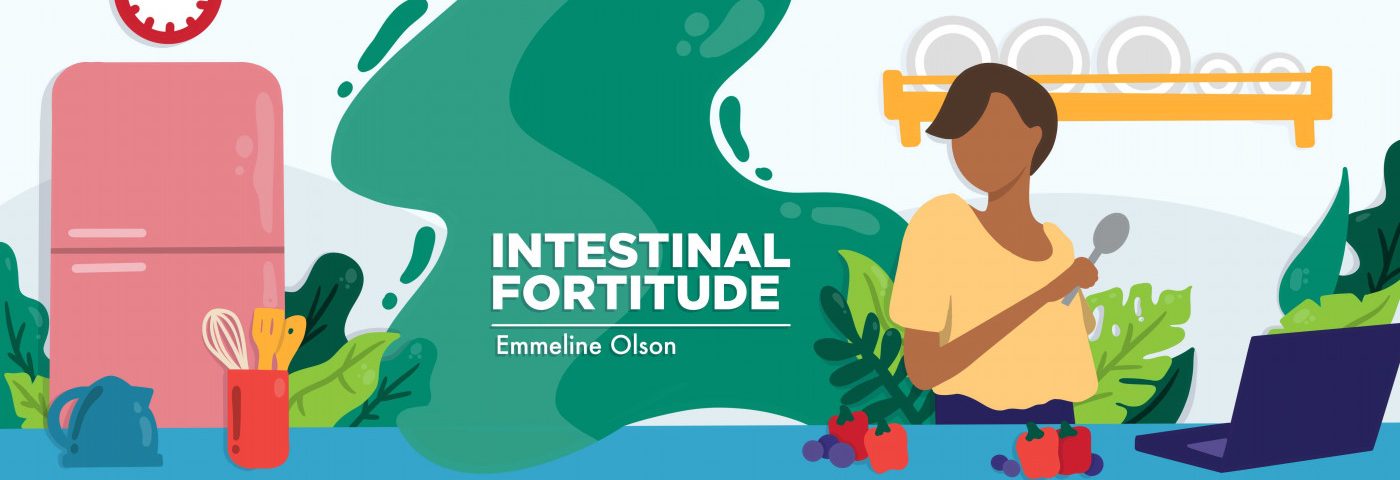When I was diagnosed with Crohn’s, I kept my illness to myself. I rarely discussed my disease with anyone except my doctors and my loved ones. I disclosed my health on a need-to-know basis.
I wasn’t embarrassed by my illness. I’m just introverted and shy. My comfort zone involves listening intently and observing the discussion, and I rarely speak unless it adds value to the conversation.
My other issue, especially with support groups, is that I’m extremely empathetic. I absorb people’s raw emotions like a sponge. Someone’s anger can darken my mood instantly. Their helplessness amplifies my melancholic temperament. Early in my diagnosis, I could barely manage my own feelings. How could I possibly share other people’s burdens?
I’ve only opened up about my autoimmune diseases in the past few years. I joined Facebook groups where I could engage on my terms. I also began advocating for affordable and accessible healthcare, which meant sharing my story to persuade others to care. Following is how I found community and support with inflammatory bowel disease (IBD) patients and others with chronic illnesses.
IBD News Today and BioNews
I would be remiss if I didn’t begin with the company that’s given me a voice to speak about living with Crohn’s disease and surviving primary sclerosing cholangitis. In March 2019, I joined the team of columnists and news writers at BioNews, the publisher of IBD News Today.
Writing about my autoimmune diseases and reading other people’s columns have been eye-opening. Although we may not suffer from the same health concerns, our battles are familiar. I’m comforted knowing I’m not alone in my physical pain or in my mental and emotional struggles.
At the same time, I’m able to view my disease from an outsider’s perspective. Other IBD News Today columns provide insight into symptoms, treatments, and surgeries I’ve never endured. They have changed my outlook and serve as inspiration on my health journey.
What I value the most as a columnist is the ability to communicate with my readers. Even though the conversation is often one-sided, I’ve conversed with patients and caregivers who comment and email. I welcome the open discussion so I can learn as much from others as they do from me.
The Crohn’s & Colitis Foundation
I refer to the Crohn’s & Colitis Foundation a lot in my columns. The nonprofit has advocated for IBD patients since 1967. It has local chapters, nationwide support groups, and an online community where patients can share their stories. Patients and caregivers can post questions in the Community Forum as well as seek medical advice under the Expert Q&A section.
My initial involvement with the Crohn’s & Colitis Foundation revolved around monetary donations. This year, thanks to the pandemic, I’ve been able to take part in more activities and events because they’ve been virtual. I was able to participate in the foundation’s largest fundraising event, Take Steps, and I’m considering signing up for spin4 crohn’s & colitis cures in December.
With video meetings becoming the norm, the Central Texas Chapter organized neighborhood online meetups. I was one of two attendees in my neighborhood meeting. The intimate setting not only allowed me to discuss my needs from the community, but it also turned into a networking opportunity.
The other attendee had a marketing and communication background similar to mine, so we exchanged emails. The following week, I noticed a job opening in the department where she worked. I applied online, but she gave me a leg up by forwarding my resumé to the hiring manager. This reminded me that support groups are more than outlets to talk about our ailments. Members can bond over our lives outside of our diseases.
The Color of Crohn’s & Chronic Illness
Recently, I learned about a new organization that focuses on diversity and inclusion in the IBD community. A study conducted from 1970 through 2010 and published in the journal Therapeutic Advances in Gastroenterology found that only 4.7% of newly diagnosed IBD patients were nonwhite. The Color of Crohn’s & Chronic Illness works to raise awareness about health equity and representation for patients of color.
The group reached out to me after linking to one of my columns on Instagram. After visiting the organization’s website and learning more about its mission, I’m now in the process of becoming an ambassador. I’m excited about being more involved and representing an overlooked facet of the IBD community.
Birds of a feather
Support groups are safe spaces. No question is stupid or silly because someone else either has the same question or knows the answer. We share frustrations with medication side effects and discuss abnormal test results or odd symptoms. We offer encouragement and compassion, which can be vital to members lacking emotional support at home. I’ve even seen recommendations for providers when a member is relocating or just wants to find better healthcare.
What groups and organizations help you manage your disease? Drop a link in the comments below.
***
Note: IBD News Today is strictly a news and information website about the disease. It does not provide medical advice, diagnosis, or treatment. This content is not intended to be a substitute for professional medical advice, diagnosis, or treatment. Always seek the advice of your physician or other qualified health providers with any questions you may have regarding a medical condition. Never disregard professional medical advice or delay in seeking it because of something you have read on this website. The opinions expressed in this column are not those of IBD News Today, or its parent company, BioNews, and are intended to spark discussion about issues pertaining to IBD.

